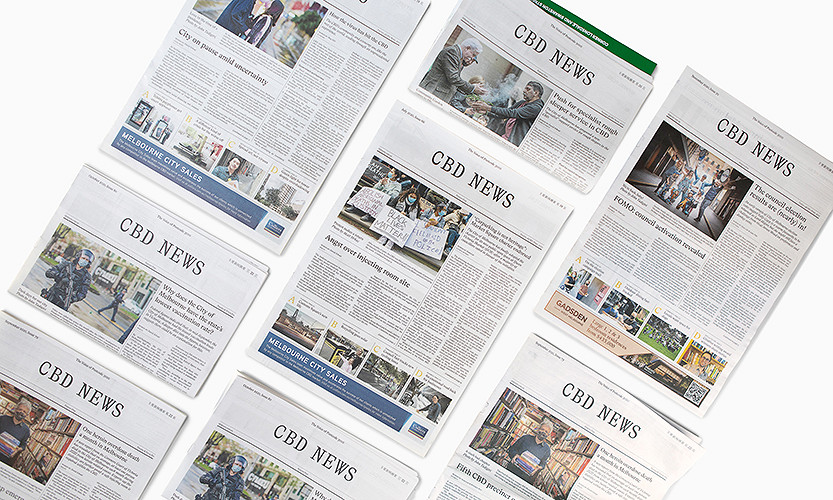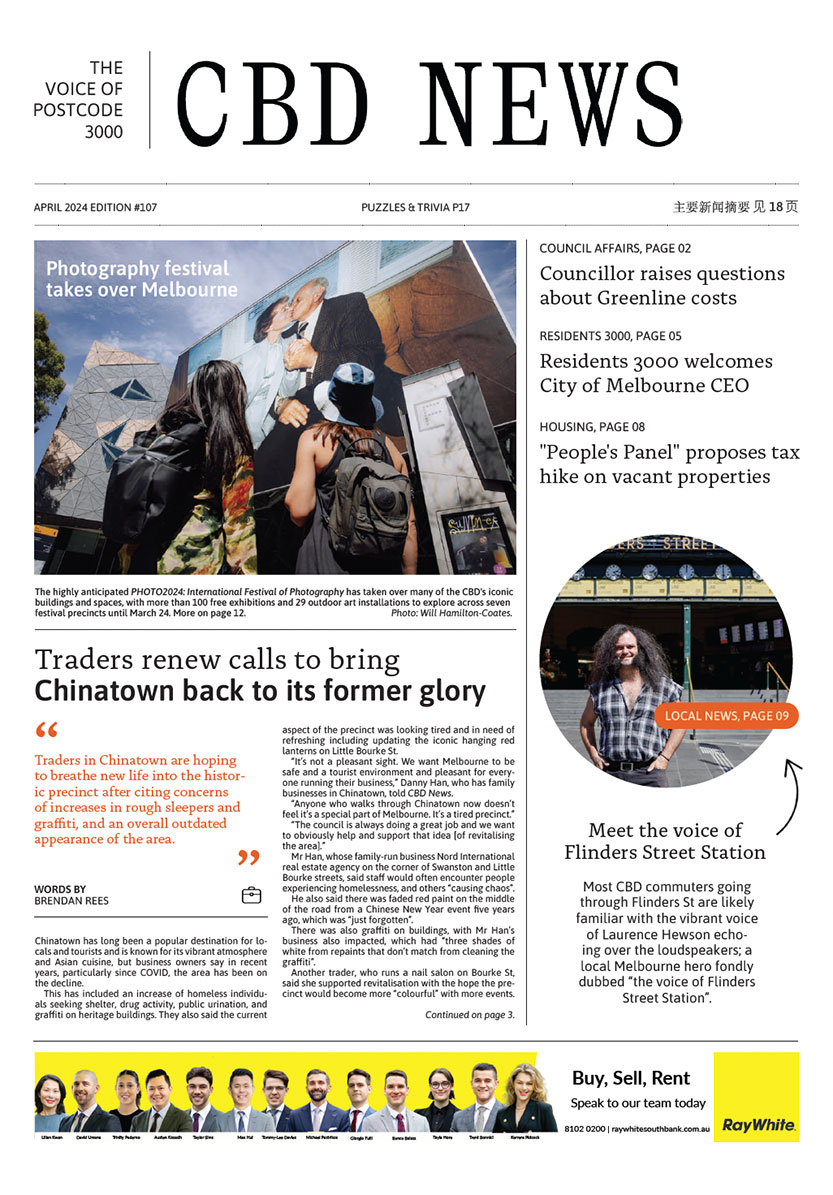During capitalist hours
By Rhonda Dredge
Capitalism was alive and kicking as a topic of discussion on the steps of the State Library in September as the warm days of Spring lifted spirits.
The sky was blue, the forecourt was full of thinkers and there was a large neon sign.
The word "capitalism" was lit up by tiny bulbs and a statement – works for me – beneath it in cursive script.
At 1 pm the voting began. People were invited to cast their vote. True or false. There was a button to push and a tally in lights. For once, you could see how your vote counted.
Enthusiasm rippled through the crowd. Even before the official start time, avid capitalists were pushing the true button, some several times. “False” voters were few and far between.
Geordie Easton was the second person to vote “false”. He faltered for a while before making his choice, but once made, was ready to defend it.
“I work in retail,” he said, “but I had an anxiety attack when I went to Walmart. There was an eight metre high wall of toothpaste brands. People get drowned by choice.”
Normally voters don’t have the opportunity to express their views but the aim of the Capitalism project, part of the Fringe Festival that opened this month at sites around the city, is to get people talking.
Another no voter was Max Delany, director of the Australian Centre for Contemporary Art, who commented on the symbolism of the site, one of the few public places left in the CBD with a history of protest.
“Capitalism would only work for me if it works for others as well,” he said.
Mr Capitalism, Steve Lambert, the American inventor of the project, was in attendance, as were his assistants, to talk to people about their views. “What they think is validated by the discussion,” he said.
“We had a Chinese student who had paid $128,000 for his education. He pushed the yes button. What does his yes mean? The word capitalism means different things in different countries.”
The aim of the art project, which has been going for seven years, is to point out that in a democracy people have a duty to evaluate the way their nation works and improve it.
“In the US capitalism is taken for granted. People believe other economic systems have failed. Even though it has problems, they think ours is the best. If we’re lucky we’ll get something more nuanced.”
The project has been to the US, UK, Netherlands and Australia. Issues arising from the conversations have been published in The Discourse of Capitalism by Christian Chun.
“We all have hybrid economies,” Mr Lambert said. “Socialism intertwined with capitalism but we don’t admit it. We admire the fantasy and idealism of capitalism as if the market has its own mind.”
Surprisingly, the people in Time Square were not as idealistic as expected when the poll was taken. “False” voters gained a 50 point margin over “true” voters out of a tally of 1500.
As 5 pm approached on the first day of counting at the library the tension mounted. Would Melbourne be more or less in favour of capitalism than New York?
A few last-minute voters tried to push the button but at knock-off time, on the dot, voting was ended and the trues had it. Melbourne is a capitalist town by 9 votes, 81 true, 72 false.
It can’t be denied that capitalism looks great on a sunny day with everyone free to cast an open vote. Asian students were happy to be here, their opinions sought. Those wanting something different were out-voted.
When the sign was packed away and an empty space reappeared on the forecourt, hopefully some other system would fill the gap until the next capitalist hour.

Experts gather to discuss “city-shaping” Greenline project






 Download the Latest Edition
Download the Latest Edition